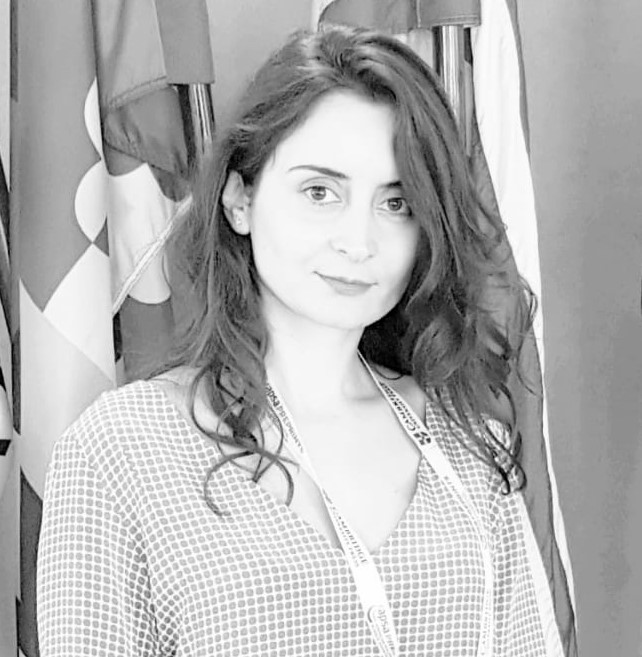Bridging the gap: innovative methods for text analysis in political science and IR
This training event has been organised by PhD students within the Security, Conflict & Justice (SCJ) Pathway and the Cities, Environment and Liveability (CEL) Pathway, in collaboration with the Department of Politics and International Relations of the University of Sheffield. It is open to all ESRC and non-ESRC funded students within the seven WRDTP partner institutions from any Pathway.
The event aims to bring a number of eminent academics working in quantitative text analysis together to share and discuss its potential applications in political science, with a particular focus on topic modelling.
Key themes of the event
- Key literature, theories and concepts where quantitative text analysis and topic modelling has significant potential and relevance
-
Challenges in applying quantitative text analysis and topic models e.g. methodological challenges, challenges from reviewers
-
The relationship between quantitative text analysis and prominent epistemological positions adopted in political science e.g. interpretivism, post-positivism
-
Motivating examples demonstrating the benefits of quantitative text analysis and topic modelling
-
Guidance for early career researchers, or academics new to quantitative text analysis, on where to start
Format
-
A series of short presentations providing case studies of quantitative text analysis and topic modelling – 1.30pm-2.30pm BST
-
An introductory training session on implementing a structural topic model (STM) – 2.30pm-3.30pm BST
-
A roundtable discussion on the opportunities and challenges for quantitative text analysis in political science – 4pm-5pm BST
Student Organisers
We are both PhD students, coming from a political science background, with a shared interest in quantitative text analysis. We are hosting this event because we are enthusiastic about the increased prominence of this form of analysis within political science, but also feel that there is unrealised potential due in part to a lack of exposure for most PhD students and academics.
We are both aiming to apply STM within our theses. Frank will use STM to explore ideational patterns of Chinese influence in Central Asia, whilst Michael will use it to explore the financialisation of UK social housing.
List of participants

Professor Dustin Tingley
Harvard University-
Dustin Tingley is Professor in the Government Department at Harvard University. Dustin is Deputy Vice Provost for Advances in Learning, Faculty director for the Vice Provost for Advances in Learning Research Group (Harvard higher education data science group), and Faculty director for the Harvard Initiative on Learning and Teaching. He received a PhD in Politics from Princeton in 2010 and BA from the University of Rochester in 2001. His research interests include international relations, international political economy, climate change and data science. Recent projects include attitudes towards global climate technologies and policies, and the intersection of causal inference and machine learning methods for the social sciences. He teaches courses on data science, international relations, and climate change.

Dr Brandon Stewart
Princetown University-
Brandon Stewart is Assistant Professor of Sociology and Arthur H. Scribner Bicentennial Preceptor at Princeton University where he is also affiliated with the Politics Department, the Office of Population Research, the Princeton Institute for Computational Science and Engineering, The Center for Information Technology Policy and the Center for the Digital Humanities. He completed a PhD in Government in 2015 and a master’s degree in Statistics from in 2014, both from Harvard University. He has worked extensively on methods for computer-assisted text analysis and with Justin Grimmer published an introduction to the field. Molly Roberts, Dustin Tingley and Brandon Stewart have developed the Structural Topic Model, an unsupervised topic model geared towards inference in the social sciences.

Dr Benjamin Bagozzi
University of Delaware-
Benjamin Bagozzi, PhD (The Pennsylvania State University, 2013) is Associate Professor at the University of Delaware, Department of Political Science and International Relations. His primary areas of specialization are political methodology and international relations. Within international relations, his research and teaching interests include environmental politics, international political economy, and the study of intra and international political violence. Methodologically, he teaches and conducts research in computational social science, text analysis, event data, and the analysis of rare events.

Professor Ken Benoit
London School of Economics-
Kenneth Benoit is Professor of Computational Social Science in the Department of Methodology at the London School of Economics and Political Science, and Professor (Part-time) in the School of Politics and International Relations, Australian National University. He received his Ph.D. (1998) from Harvard University, Department of Government. His current research focuses on computational, quantitative methods for processing large amounts of textual data, mainly political texts and social media. His substantive research in political science focuses on comparative party competition, the European Parliament, electoral systems, and the effects of campaign spending.

Dr Claudia Roberta Combei
University of Bologna-
Claudia Roberta Combei holds a PhD in Linguistics from the University of Pisa (2019), where she specialised in corpus linguistics, NLP, and phonetics. She defended a doctoral dissertation on human perception and computational processing of foreign-accented speech. From 2018 she has worked at the University of Bologna, first as a Post-doctoral Researcher in Political Communication and as a Teaching Assistant in Linguistics and currently as a Research Assistant in Linguistics and NLP Manager at the Department of Modern Languages, Literatures and Cultures. Claudia Roberta Combei adopts corpus linguistics and usage-based approaches in her research, combining computational, quantitative and qualitative techniques. Some of her recent publications include articles on political and (social) media discourse, pragmatics, lexical semantics and phonetics and phonology. She is a member of the editorial board of John Benjamins Publishing Bibliography of Metaphor and Metonymy (MetBib).

Dr Anastasia Shesterinina
University of Sheffield-
Dr Anastasia Shesterinina is a Lecturer in Politics/International Politics at the Department of Politics and International Relations, University of Sheffield. She holds a PhD (2014, first class) in Political Science from the University of British Columbia and an Honours Double Major BA (2008, summa cum laude) in Political Science and European Studies from York University in Canada. Dr Shesterinina’s interests lie at the intersection of international relations, comparative politics, and qualitative methodology. Her field-intensive research explores the internal dynamics of and international intervention in contemporary armed conflict, with a focus on social mobilization, ex-combatant demobilization and reintegration, and civilian protection norms and practices.

Dr Todd Hartman
University of Sheffield-
Dr Anastasia Shesterinina is a Lecturer in Politics/International Politics at the Department of Politics and International Relations, University of Sheffield. She holds a PhD (2014, first class) in Political Science from the University of British Columbia and an Honours Double Major BA (2008, summa cum laude) in Political Science and European Studies from York University in Canada. Dr Shesterinina’s interests lie at the intersection of international relations, comparative politics, and qualitative methodology. Her field-intensive research explores the internal dynamics of and international intervention in contemporary armed conflict, with a focus on social mobilization, ex-combatant demobilization and reintegration, and civilian protection norms and practices.

Professor Susan Banducci
University of Exeter-
Susan Banducci is Professor and Director of the Exeter Q-Step Centre, working toward advancing quantitative methods in the social sciences. Their research interests are in the areas of comparative political behaviour, media and political communication. They are also a Turing Fellow and a deputy director of Exeter’s Institute for Data Science and Artificial Intelligence. Professor Banducci’s research focuses on inequalities in political participation, bringing together individual and institutional explanations for inequalities into multi-level analyses using large-scale cross-national surveys.

Dr Matteo Farne
University of Bologna-
Matteo Farnè received his PhD in Statistical Sciences at the University of Bologna in 2016, discussing a thesis entitled “Large covariance matrix estimation by composite minimization” under the guidance of Prof. Angela Montanari. Admitted to the Superior College of UNIBO in 2010, he spent research periods at University College London in 2012, Stanford University in 2014, European Central Bank in 2015. His research interests include cluster analysis, outlier detection, spectral analysis, factor models, large-dimensional covariance matrix estimation, prediction and classification models. Research fellow since October 2015 at the Department of Statistical Sciences, he spent the academic year 2019/2020 at UC Davis as a Visiting Assistant Professor in Statistics, before joining the University of Bologna as a Researcher in May 2020.

Dr Debora Slanzi
Assistant Professor of Statistics, Department of Management, Ca’ Foscari University of Venice-
Debora Slanzi is Assistant Professor of Statistics at the Department of Management of the Ca’ Foscari University of Venice and research scientist at the European Centre for Living Technology (ECLT). She received her Ph.D. in Statistics at the University of Padua (2006). Her main research interests concern methodological and applied statistical approaches for complex and multidimensional systems. More specifically she conducts research on predictive multivariate statistical models, on Bayesian Networks, and on multi-objective optimization. She also contributed to several multidisciplinary research projects at ECLT, such as COBRA, MEDIUM and BLOOM.

Dr Valentina Anzoise
Urban and Environmental Sociologist and Adjunct Professor of Cultural Sociology, European Institute of Design-
Valentina Anzoise is Urban and Environmental sociologist and adjunct professor of Cultural Sociology at the European Institute of Design. She received her PhD in Information Society at the University of Milan-Bicocca (2009) and a post-graduate specialization in Participatory Local Action and Sustainable Urban Development at IUAV University of Venice. She has collaborated on several national and international projects, she was research fellow at the European Center for Living Technology of Ca’ Foscari University of Venice (2012-2017) and Young Researcher of the EuropeAid MEDIUM: New pathways for sustainable project urban development in China’s medium-sized cities (2015-2018). Her main research interests concern qualitative and visual methods and focus on urban/rural sustainability, landscape and territorial research.
PLEASE NOTE: Our online training sessions will be recorded and will be available on the VIRE in an edited format for those students who cannot attend. If you wish to join this session but do not wish for your contributions to be included in the edited VIRE resource, please ensure that you select NO when prompted in the online booking form regarding recording.










